Walmart Shoppers Threaten to Boycott Over Self-Checkout Change
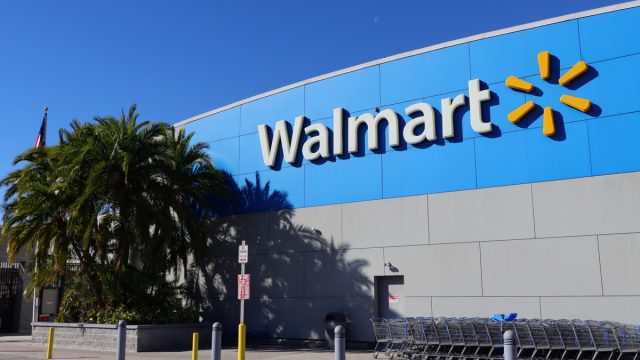
Self-checkout machines are already a controversial feature across all retailers. Some consumers prefer the convenience they provide, while others have slammed many businesses for making self-checkout the only option to use in stores. But now, one mega-retailer is choosing to make a new upgrade to these machines that is making customers even more upset. Read on to find out why Walmart shoppers are threatening to boycott over a self-checkout change.
RELATED: Walmart Worker Issues Warning to Shoppers About Self-Checkout.
Walmart is expanding its in-store advertisements.
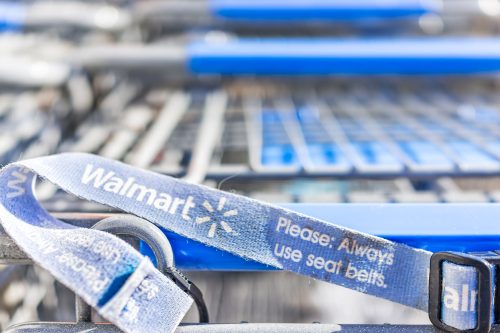
Walmart’s newest upcoming change is centered around advertising, CNBC reported on Aug. 1. According to the news outlet, the retailer is planning to sell and push more third-party ads to shoppers in its stores.
Walmart currently has approximately 170,000 digital screens across its nearly 4,700 U.S. stores, and with this change, they’ll make them available to suppliers for additional advertisements later this year. While shoppers might feel like these ads are new, a spokesperson maintains they’ve existed for years, and the only new additions to self-checkout are In-Store Demos and In-Store Audio, as detailed on the Walmart Connect website.
“When you think about our store, our store footprint and the percentage of Americans that we reach through our stores, we can deliver Super Bowl-sized audiences every week,” Ryan Mayward, senior vice president of retail media sales for Walmart Connect, the retailer’s advertising business, told CNBC.
RELATED: Shoppers Are Turning Away From Dollar Tree—Here’s Why.
These ads will be added at self-checkouts.
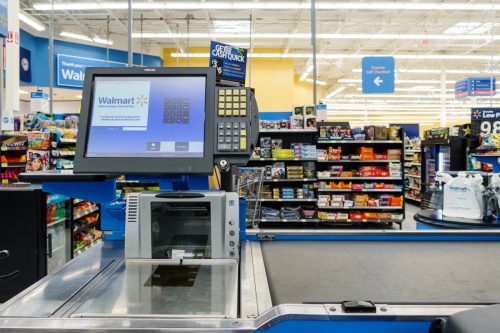
Through these new advertising initiatives, Walmart shoppers will soon see more third-party ads on screens in the retailer’s TV aisles and hear more commercials over the store’s radio. But that’s not all.
You can also expect to experience these ads and commercials while you’re trying to scan and purchase your items at the self-checkout. Walmart is already pushing self-checkout ads to buyers on its Connect website, explaining that they will help “influence point-of-purchase and future decisions” for shoppers in its stores.
“Show up at checkout to keep the journey going,” Walmart Connect’s website states. “Our Closed-loop Measurement can even verify when self-checkout ads influence a later purchase on our digital properties or the next time they walk in.”
RELATED: Walmart Is Offering Full Refunds After Major Self-Checkout Problem.
Shoppers are threatening to boycott Walmart over this change.
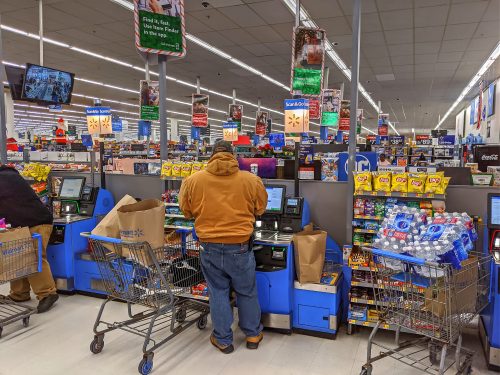
This change isn’t exactly going over well—even though it hasn’t been implemented yet. Consumers have already started to criticize Walmart’s plans to expand advertisements to self-checkout screens.
“One more reason to never go there,” one user wrote in an X post on Aug. 4 in regards to the news. Another person added in a repost, “Agreed. Not a single penny—this solidifies it. I detest ads.”
“If I have to watch a 30s video about an advertisement, I’m just walking out. Maybe with the item lol,” a different consumer posted Aug. 1 on X. “Walmart you can’t do this!!”
Best Life has reached out to Walmart about the complaints, and we will update this story with its response.
RELATED: For more up-to-date information, sign up for our daily newsletter.
Walmart said it is being cautious with its in-store advertisements.
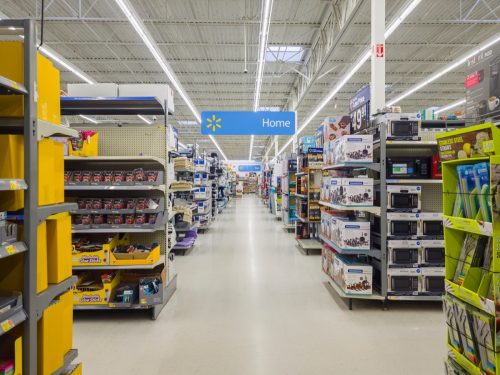
Walmart appears to be prepared for pushback, however. Many retailers are working to grow their ad revenue, but this big-box retailer has largely been focused on selling online ads up until now, CNBC reported. After all, in-store advertisements have already created backlash for other businesses—like Walgreens, which experienced a flurry of frustration from shoppers after adding digital smart screens that flash ads on fridge and freezer doors in its drugstores across the U.S.
To try and avoid this, Mayward told CNBC that Walmart has been adding advertising to its stores “in a very deliberate and cautious way.” When done right, the executive said that these third-party ads will be able to enhance the shopping experience for customers and lift sales.
For instance, a customer may buy a sound bar after learning about it on a TV advertisement when walking through the electronic department, or they might decide to grab a jar of salsa after seeing a video about it near the aisle of their favorite bag of chips, according to Mayward.
“It’s a complimentary advertising moment,” he said. “It’s helping you make connections between two different products and decide that you maybe need that second thing.”